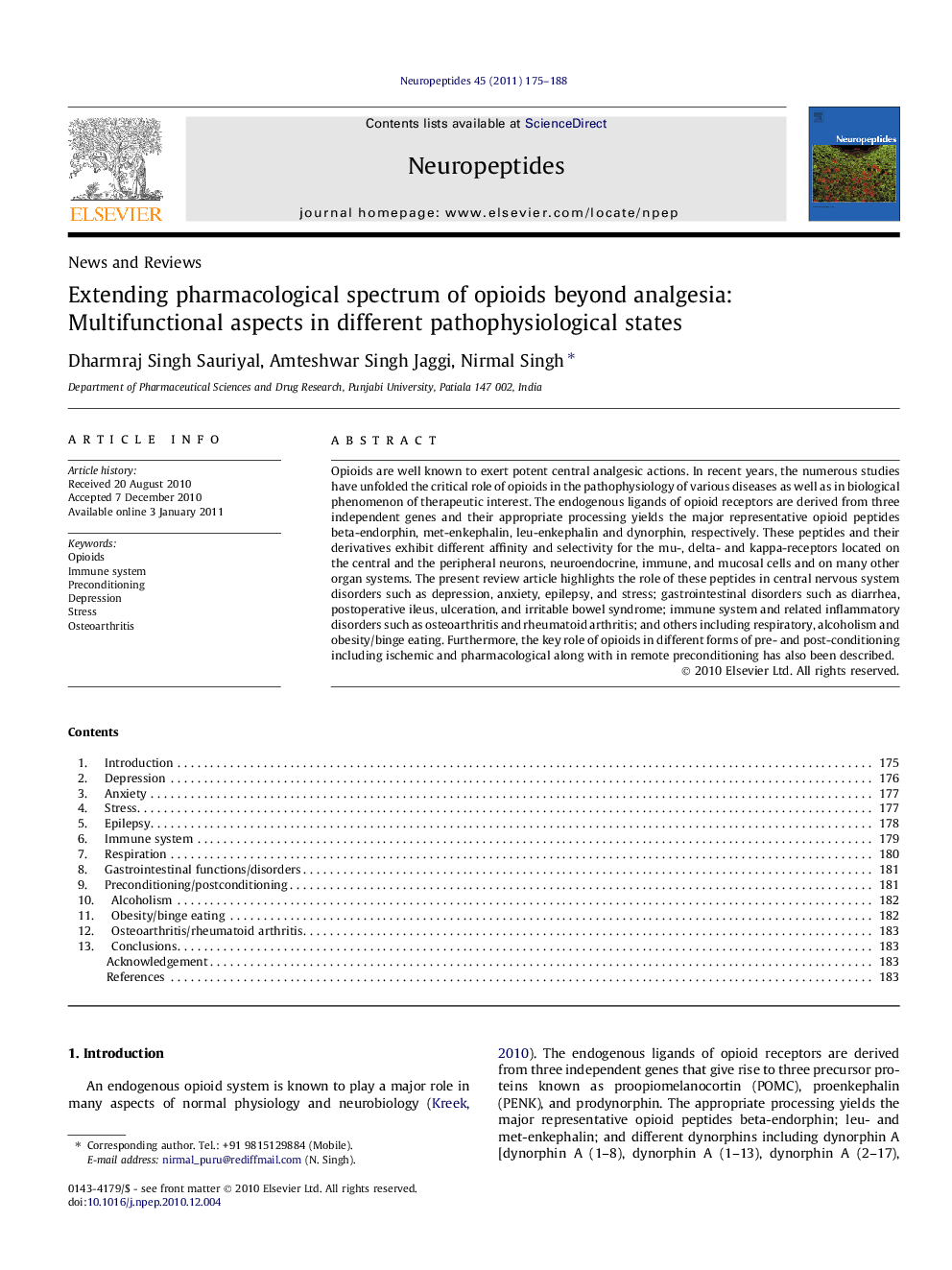| Article ID | Journal | Published Year | Pages | File Type |
|---|---|---|---|---|
| 2808342 | Neuropeptides | 2011 | 14 Pages |
Abstract
Opioids are well known to exert potent central analgesic actions. In recent years, the numerous studies have unfolded the critical role of opioids in the pathophysiology of various diseases as well as in biological phenomenon of therapeutic interest. The endogenous ligands of opioid receptors are derived from three independent genes and their appropriate processing yields the major representative opioid peptides beta-endorphin, met-enkephalin, leu-enkephalin and dynorphin, respectively. These peptides and their derivatives exhibit different affinity and selectivity for the mu-, delta- and kappa-receptors located on the central and the peripheral neurons, neuroendocrine, immune, and mucosal cells and on many other organ systems. The present review article highlights the role of these peptides in central nervous system disorders such as depression, anxiety, epilepsy, and stress; gastrointestinal disorders such as diarrhea, postoperative ileus, ulceration, and irritable bowel syndrome; immune system and related inflammatory disorders such as osteoarthritis and rheumatoid arthritis; and others including respiratory, alcoholism and obesity/binge eating. Furthermore, the key role of opioids in different forms of pre- and post-conditioning including ischemic and pharmacological along with in remote preconditioning has also been described.
Related Topics
Life Sciences
Biochemistry, Genetics and Molecular Biology
Endocrinology
Authors
Dharmraj Singh Sauriyal, Amteshwar Singh Jaggi, Nirmal Singh,
